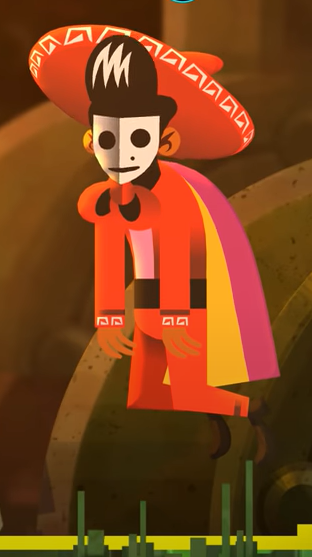
:origin()/pre13/e559/th/pre/i/2005/043/a/1/chac_mool_by_levanflew.jpg)
Drinkbox received funding for Tales From Space: Mutant Blobs Attack from the government, with hardware and support from Sony, and released the game as a launch title alongside the PlayStation Vita in early 2012. At the same time, Drinkbox brainstormed a sequel to About a Blob to coincide with a deadline for a funding program through the Ontario government. Now it was time to do it again.Īt the end of 2010, as the studio wrapped up development on About a Blob, Sony approached Drinkbox to develop an original launch title for its unannounced handheld. The studio had proven that it could produce original content and shipped its first game. As it had been for years now, Drinkbox was building relationships that not only kept the studio afloat, but also set it up for future opportunities. The game was self-funded by Drinkbox and released as part of Sony Computer Entertainment America's Pub Fund program, which provides developers funding and profit sharing in return for timed exclusivity on Sony platforms. During its first years, Drinkbox wrote code, saved its money and used its savings to finance About a Blob, its first original game, which the company released in 2011 on the PlayStation Network. But we were basically trying to build up a bankroll that we could use to fund our game and to hire more people to work on the game."Īll told, Smith said Drinkbox has worked on about 20 different projects since its inception. "We were able to start paying ourselves some salary after a few months of the company - some low salary. "The money from working on external contracts was pretty good," Drinkbox's Graham Smith told Polygon. Working on these projects and establishing relationships with developers and publishers was a means to an end. Though it had come up with the concept for Tales from Space: About a Blob not long after the studio's founding, Drinkbox spent its first few years leveraging its programming expertise to help other companies make games like Marvel Ultimate Alliance 2, Dungeons & Dragons: Daggerdale and Sound Shapes. Within a few weeks, the trio hired a senior artist and designer, creating what would be the five man core of the company during its formative years.īut the path to creating its own games wasn't straightforward, and it would be years until the studio had built up enough collateral to create that opportunity. They founded Drinkbox Studios to build the development house they wanted to work at and create the games they wanted to play. Toronto's independent developer scene wasn't as vibrant then as it is today, and many former Pseudo employees fled Toronto for work elsewhere.īut Chris Harvey, Ryan MacLean and Graham Smith, three former Pseudo Interactive programmers, stuck around.

When its final game lost funding, Pseudo laid off about 90 percent of its staff, and dismissed the remaining skeleton crew a few weeks later. In 2008, the game development studio arose from the remnants of Toronto-based developer Pseudo Interactive. The plan was always to create its own games, but it took years of work for Drinkbox Studios to earn that privilege.


 0 kommentar(er)
0 kommentar(er)
